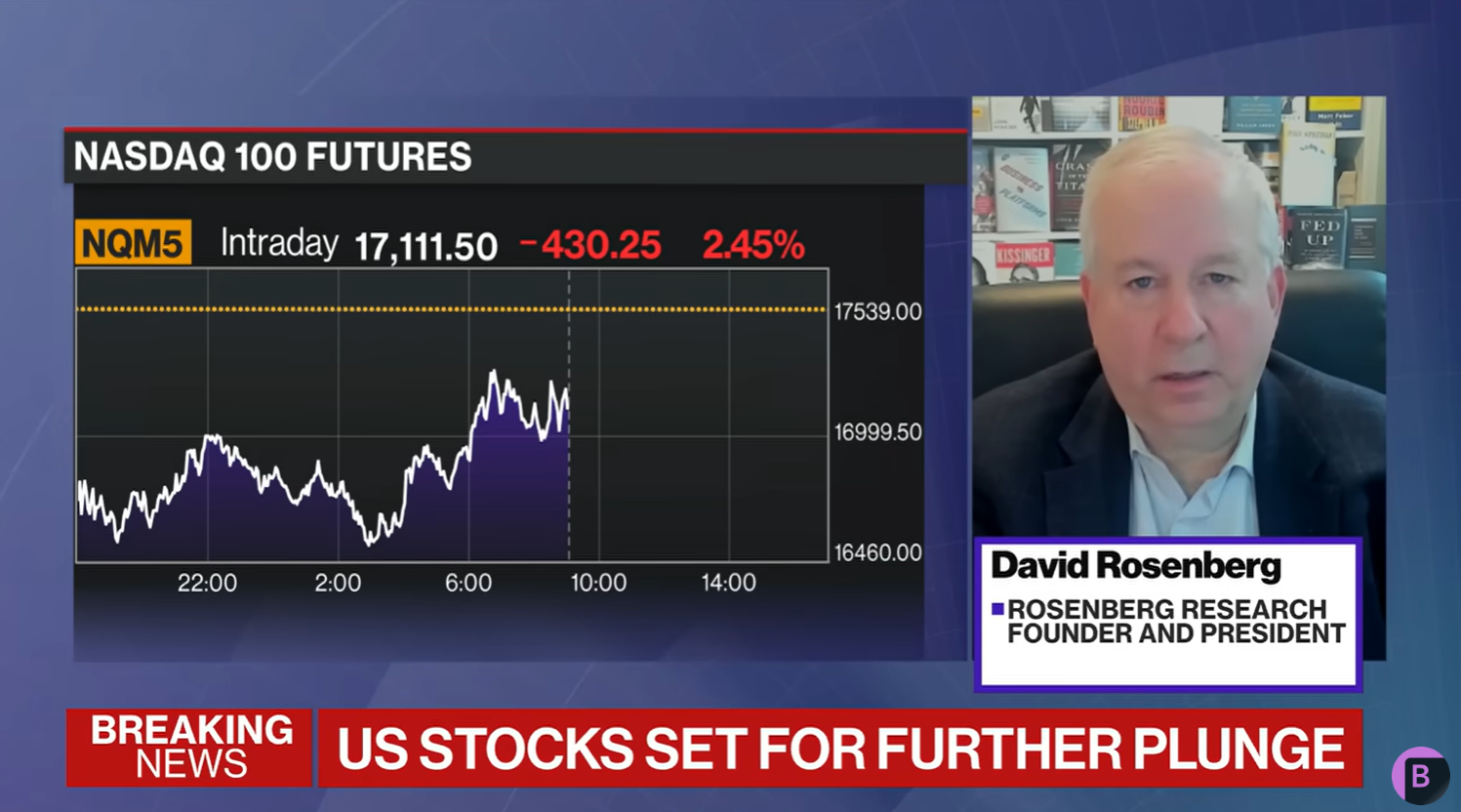
Why Advisors Need Macroeconomic Research Analysts for Accurate Forecasts
November 28, 2024
In today’s complex and interconnected financial landscape, advisors face growing challenges in providing clients with accurate, forward-looking strategies. Macroeconomic research analysts are critical partners in this process, offering insights that guide advisors through volatile markets, policy changes, and shifting global trends. Advisors need macroeconomic expertise to not only understand the bigger picture but also to craft precise forecasts that align with client goals.
Understanding the Importance of Macroeconomic Analysis
Macroeconomic analysis involves the study of the broader economic environment, including trends in inflation, employment, GDP growth, trade balances, and interest rates. By examining these indicators, research analysts help advisors see the connections between policy decisions, market trends, and global developments. The aim is to forecast how these forces will impact investments, business cycles, and financial markets.
Macroeconomic analysis is crucial in constructing a diversified and resilient portfolio. For example, if inflation is rising, research analysts can provide insights into how it may affect certain asset classes, such as bonds, equities, or real estate. Advisors, armed with this knowledge, can guide clients to adjust their portfolios, ensuring they are well-positioned for potential changes.
Key Economic Indicators Driving Investment Decisions
Advisors rely heavily on macroeconomic research analysts to interpret key economic indicators. These indicators give an overall picture of the economy’s health and are essential for making informed decisions. Here are a few critical indicators that macroeconomic analysts provide context for:
Gross Domestic Product (GDP): GDP measures a country’s overall economic output. Analysts assess GDP trends to identify periods of economic expansion or contraction. A declining GDP could signal a coming recession, prompting advisors to take a more conservative approach with client portfolios.
Inflation Rates: Inflation can erode the purchasing power of investments, so tracking inflation rates is essential. Macroeconomic analysts help advisors navigate how inflation impacts various asset classes, from equities to fixed income. Understanding inflation trends also helps in making decisions about assets that might serve as a hedge against inflation, such as commodities or real estate.
Unemployment Rates: Rising unemployment usually points to slower economic growth. Macroeconomic research analysts can provide early warnings about declining labor market health, allowing advisors to adjust clients’ investment strategies accordingly.
Interest Rates: Central bank policies on interest rates play a significant role in market performance. Analysts offer insights on how changes in interest rates impact sectors like housing, finance, and consumer spending, helping advisors understand when to move clients into or out of specific investments.
Each of these indicators paints part of a broader economic picture. Macroeconomic research analysts synthesize this information, offering forecasts that guide advisors in making tactical decisions.
The Role of Macroeconomic Analysts in Risk Management
Volatility is inherent in financial markets, and macroeconomic research analysts are essential for helping advisors mitigate risks. From political shifts to unexpected market downturns, external shocks can drastically alter an investment landscape. For example, geopolitical tensions can disrupt global supply chains, while environmental disasters can affect commodity prices. In these situations, macroeconomic analysts provide the timely insights necessary for advisors to react quickly, safeguarding client assets against sudden economic shifts.
By closely monitoring policy changes, fiscal and monetary developments, and global economic events, analysts help advisors anticipate risks before they materialize. This early warning system enables advisors to implement protective strategies such as hedging, diversifying investments, or shifting to more conservative positions in anticipation of market disruptions.
In addition, macroeconomic analysts help advisors gauge how central bank actions, such as interest rate hikes or quantitative easing, will affect market volatility. By understanding how these policies influence sectors like banking, real estate, and manufacturing, advisors can tailor their risk management strategies, ensuring clients remain resilient in times of uncertainty.
Enhancing Client Communication and Confidence
For financial advisors, effectively communicating complex economic trends to clients is key to maintaining trust and confidence. However, macroeconomic analysis can often be dense and technical, making it difficult to explain the implications clearly. This is where macroeconomic research analysts come in.
Analysts break down complex data into actionable insights that are digestible for both advisors and their clients. For instance, rather than presenting raw economic data, an analyst might explain how rising inflation could affect the cost of living and investment returns. Advisors can then convey these insights in simple, relatable terms, helping clients understand the reasoning behind adjustments to their portfolios.
Moreover, clients appreciate seeing that their advisor is backed by comprehensive research and a team of experts. Having access to macroeconomic analysts reassures clients that their financial strategy is built on solid data and well-informed forecasts, enhancing their confidence in the advisor’s decisions.
Strategic Portfolio Adjustments During Market Cycles
Advisors need to adjust their strategies throughout different phases of the market cycle, and macroeconomic research analysts play a crucial role in guiding these shifts. During periods of economic expansion, analysts may suggest increasing exposure to equities or sectors that benefit from growth, such as technology or consumer goods. Conversely, during periods of contraction or recession, analysts might recommend reducing risk by moving toward more defensive assets like bonds, utilities, or dividend-paying stocks.
Macroeconomic research also helps advisors implement sector rotation strategies. As various industries perform differently depending on economic conditions, analysts offer insights on which sectors are likely to thrive. For example, during a rising interest rate environment, financial stocks might perform well, while utilities or real estate may struggle. Analysts provide the intelligence needed to shift investments to sectors that are expected to outperform in a given market condition.
Furthermore, analysts provide essential data on global trends. As economies become more interconnected, international market movements impact domestic portfolios. For instance, if a country like China experiences an economic slowdown, it could affect global commodity prices, or a policy shift in the European Union might impact international trade. Advisors rely on macroeconomic analysts to track these trends and adjust portfolios accordingly, ensuring that clients benefit from global opportunities while avoiding unnecessary risks.
Navigating Policy Changes and Global Trends
One of the greatest values macroeconomic research analysts offer is their ability to interpret the broader impacts of fiscal and monetary policy changes. As central banks adjust interest rates or governments implement new tax policies, analysts provide guidance on how these shifts will affect different asset classes and markets. For example, a new fiscal stimulus package might boost consumer spending and the stock market, while higher interest rates could negatively affect borrowing costs and real estate values.
Global macroeconomic trends, such as trade disputes, technological disruptions, and geopolitical events, also influence financial markets. Macroeconomic research analysts have the expertise to understand these global developments and predict their impacts on investments. Advisors equipped with these insights can help clients seize new opportunities or hedge against potential downturns, providing a proactive approach to financial planning.
The Competitive Advantage of Macroeconomic Analysis
In an increasingly competitive financial landscape, having access to macroeconomic research analysts gives advisors a significant edge. By integrating macroeconomic insights into their strategies, advisors can offer more accurate, data-driven forecasts. This sets them apart from others who may rely solely on historical data or market sentiment.
Macroeconomic analysis allows advisors to be forward-looking rather than reactive, positioning clients to capitalize on emerging trends and navigate potential risks effectively. Whether it’s forecasting inflation, predicting the effects of interest rate changes, or understanding the impact of global events, advisors with access to macroeconomic research are better equipped to provide high-quality, strategic advice.
The Essential Partnership Between Advisors and Macroeconomic Analysts
In the fast-paced world of finance, advisors must stay ahead of economic trends to guide their clients toward long-term success. Macroeconomic research analysts provide the critical insights needed to navigate the complexities of global markets, offering a foundation for accurate forecasting, risk management, and strategic investment decisions.
By leveraging macroeconomic analysis, advisors can communicate more effectively with clients, make timely portfolio adjustments, and respond to evolving economic conditions with confidence. In an uncertain economic landscape, advisors backed by robust macroeconomic research are better positioned to build resilient strategies that deliver value.
For advisors looking to enhance their decision-making and provide clients with more informed strategies, subscribing to a reliable source of macroeconomic insights is essential. At Rosenberg Research, we provide comprehensive economic analysis that helps you stay ahead of global trends and anticipate key market shifts.
Sign up for our free trial today and experience the difference that expert macroeconomic research can make for your practice.
Rosenberg Research ©2025 All Rights are Reserved



